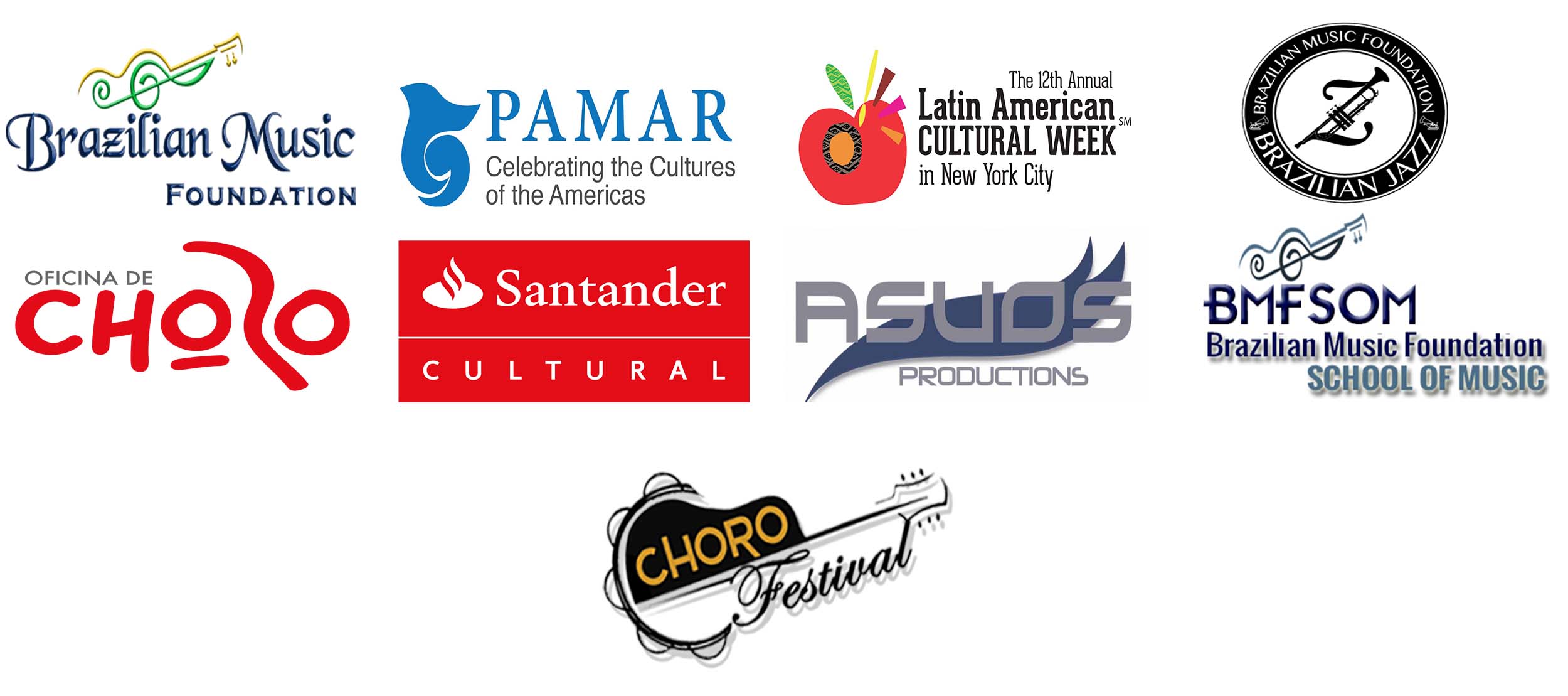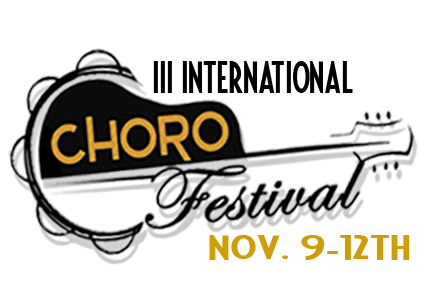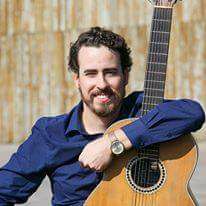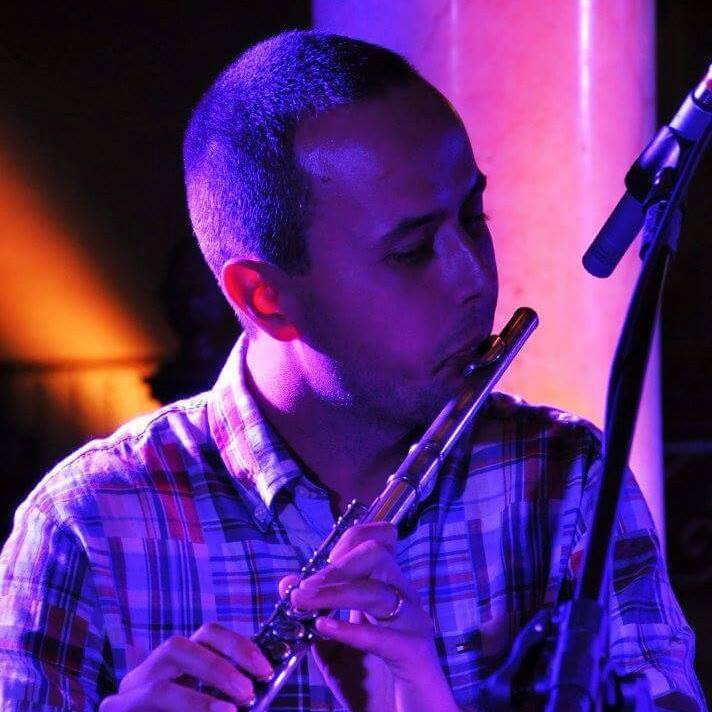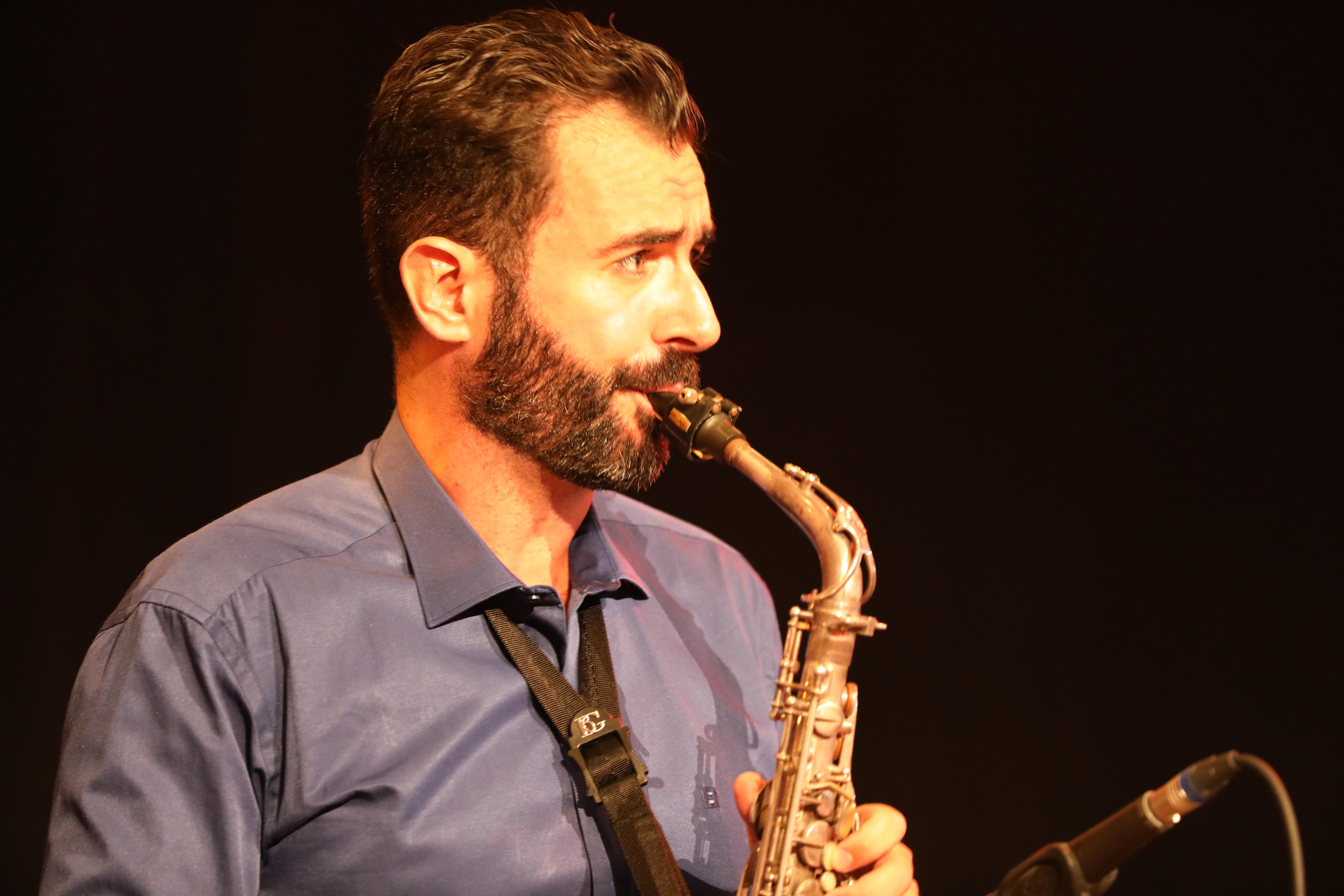The best of Choro Music!
Featuring Mathias Pinto/Acoustic Guitar, Lucian Krolow/Flute, Tom Armstrong /Percussion, Alexandre Susin/Cavaquinho, and Rafael Pereira Lima/Alto Sax, Nelson Latif/Cavaquinho and acoustic guitar, and special guests.
About Sexto Gaucho
Sexteto Gaucho was officially formed in 2012 in the city of Porto Alegre, Rio Grande do Sul. The members initially met while playing with several other artists at different ‘Rodas de Choro’, typical jam-session style meetups for musicians who play Choro music. For the past 7 years, the Sextet has performed traditional Brazilian Choro and authorial compositions. Their musical style and sonority tends to be defined as traditional, given the interplay between the sounds of the guitar, cavaquinho, tambourine and flute solos.
Aside from public performances and shows, the group also participates in a major educational program called “Oficinas de Choro” which is sponsored by Santander Cultural and currently coordinated by musician Mathias Pinto. https://www.oficinadechoro.com.br
November 12th:2017
Last Festival day!
Sexteto Perfomance
SOB’s 1:00 pm and 2:30 Pm
Address: 204 Varick St, New York, NY 10014
(212) 243-4940 ( reserve your table in advance)
Brunch $ 45 (including $15 cover)
Reserve now
Note: (All proceeds will go to Brazilian Music Foundation)
BMF is a 501(c)(3) nonprofit organization
Fundraiser for the Brazilian Music Foundation,a non-profit organization promoting Brazilian culture and music via educational and performance programs.
About the musicians:
Mathias Behrends Pinto / Acc. Guitar – Born in Porto Alegre(Brazil) is the current coordinator of the Choro Santander Cultural Workshop, graduated in music from Instituto Porto Alegre, composer, guitar player and arranger working on several projects related to Choro language.
Lucian Krolow (Flute) – Natural of the city of Pelotas(Brasil) where it was formed Bachelor in Flute Transversal by Ufpel. He is currently professor of the Choro Workshop at Santander Cultural in Porto Alegre developing the language of Choro with Flute players in general.

Alexandre Susin/Cavaquinho/Singer, Cavaquinho player and composer, he works on several projects related to choro and samba in Porto Alegre. Since the beginning of the year, he is a teacher in the voice-choir classes at the Oficina de Choro Santander Cultural.
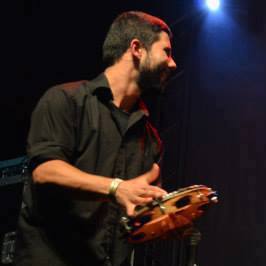
Guilherme Sanches/Percussion – Born in Porto Alegre (RS), he began his musical activities in 1997, performing in the music festivals of the state of Rio Grande do Sul. He has accompanied many Brazilian artists such as Déo Rian, Ademilde Fonseca, Jorginho do Pandeiro, Avendano Júnior, Plauto Cruz, Darcy Alves, Luciana Rabello, Nilze Carvalho, Ronaldo do Bandolim, Moacir Luz, João de Almeida Neto.
Rafael Pereira Lima / Alto Sax – Rafael is a Brazilian Samba Jazz Saxophonist specialized in Choro music. He got his Masters in Jazz Performance (Netherlands/NYC) at the University of Hanze. For two years was professor of saxophone and improvisation the Federal University of Brazil and has performed with many important artists including Hermeto Pascoal. In USA, he played with the MCC Jazz Big Band, in the Far Away Places Jazz Combo and in MCC’s Improv Band. By the age of 24 years old got his classical Saxophone Bachelor degree from Institute of Arts of UFRGS/Brazil. Today Rafael is living in Rotterdam.
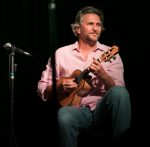
Nelson Latif – Cavaquinho and acoustic guitar player Nelson Latif formed his musical identity in the legendary jazz scene of 1980’s São Paulo. With roots in choro and jazz, Latif merges Brazilian guitar technique with diverse musical influences. As sociologist and cultural promoter, Nelson Latif has been coordinating educational projects for universities and cultural institutions around the world.
About Choro Music:
The Brazilian musical style of Choro represents the coming together of European melodic and harmonic traditions with African rhythms and sensibilities. Emerging in Brazil in the middle of the nineteenth century, Choro is a cousin of jazz, with a sense of yearning that is often described as a “sweet lament.” Many ethnomusicologists believe that the name Choro comes from the Portuguese verb chorar—that is, to weep or to cry. It often seems bright and happy on the surface, but if you dig deeper you’ll find a kind of sadness, a longing that Brazilians call saudade. Something about the combination of Portuguese and Italian influences resulted in melodies with a strong romantic feeling. When joined with its African influences, Choro has an irresistible groove and rhythmic momentum that is uniquely Brazilian.
Read more about Choro: https://www.choromusic.com
Videos: Sexteto Gaucho:
Sponsors
